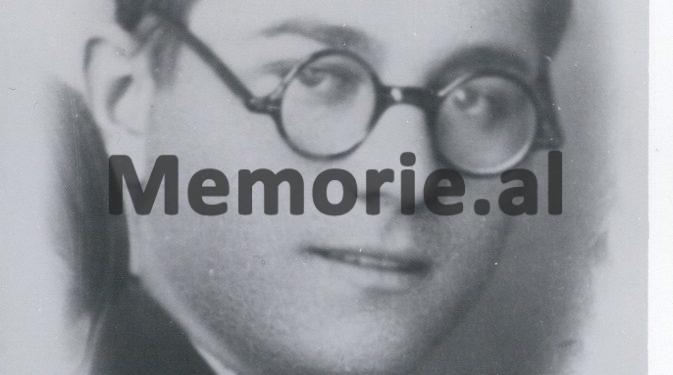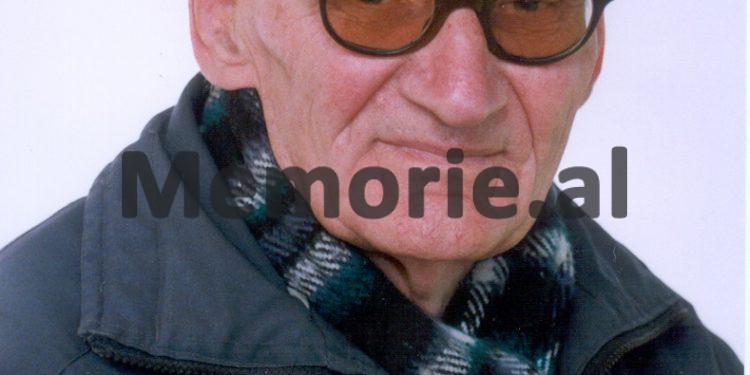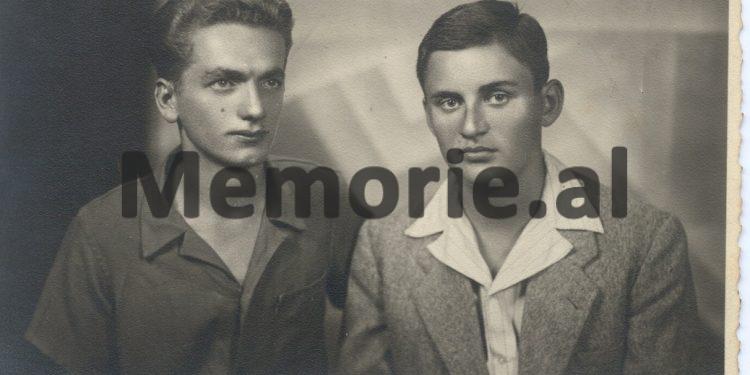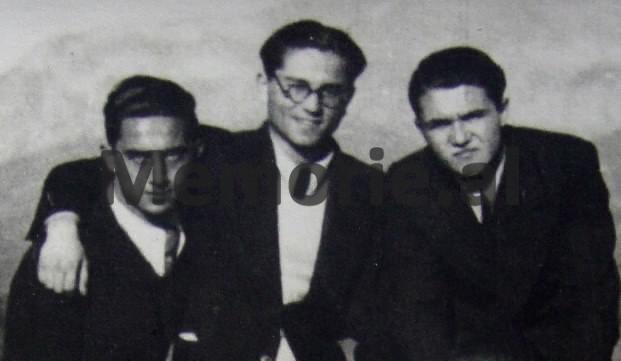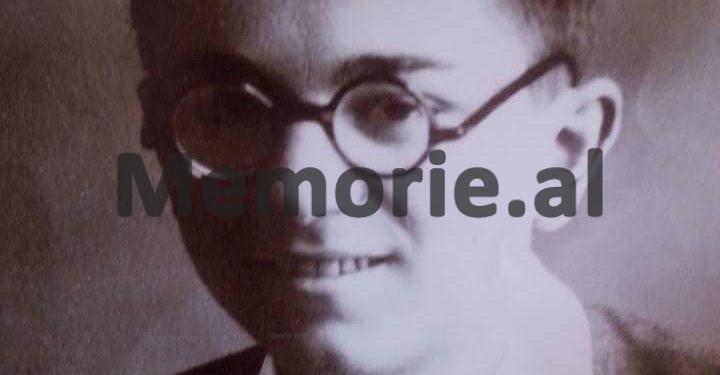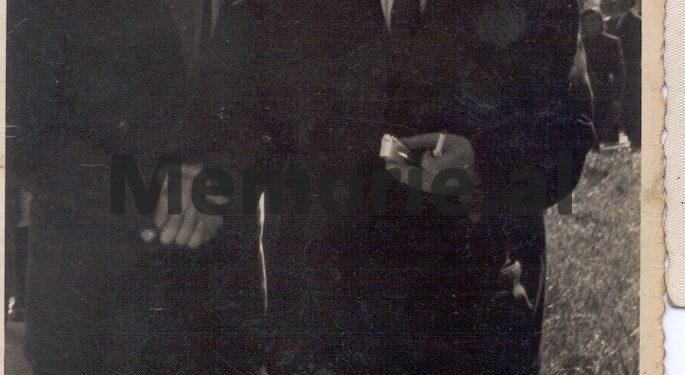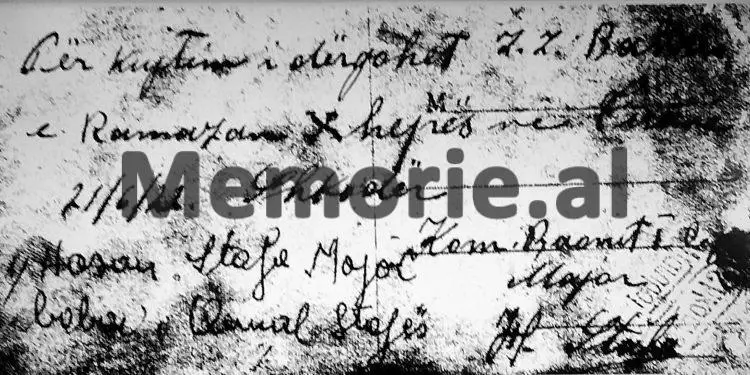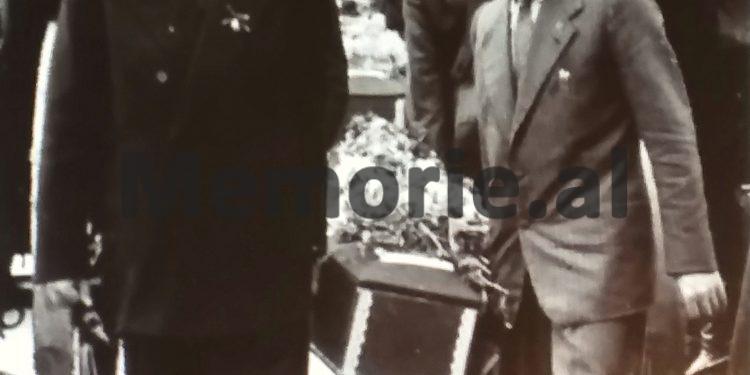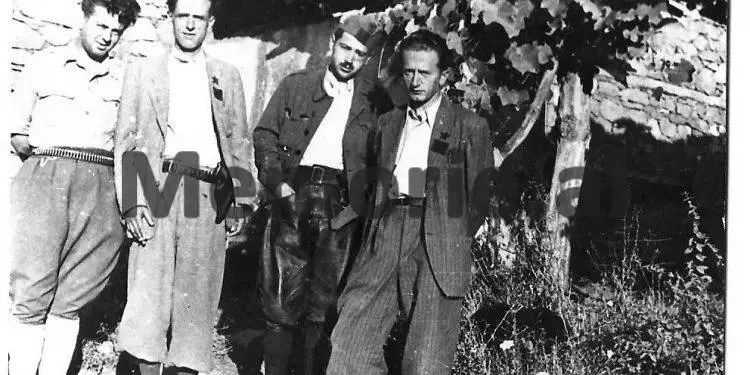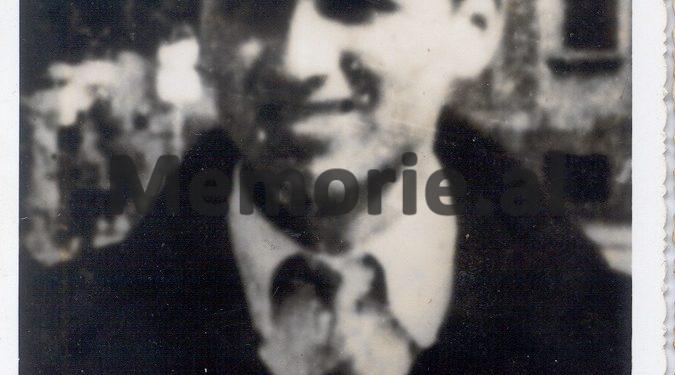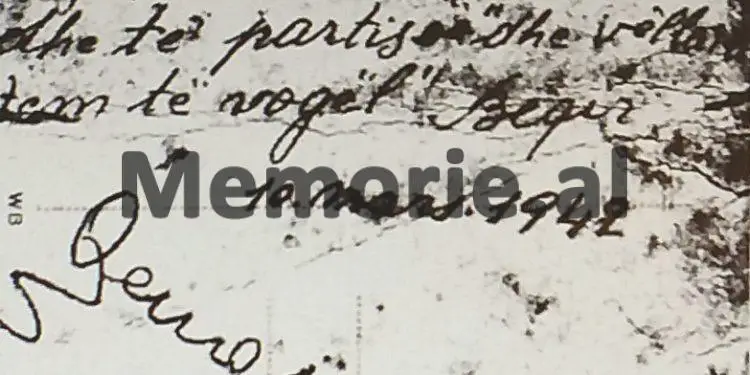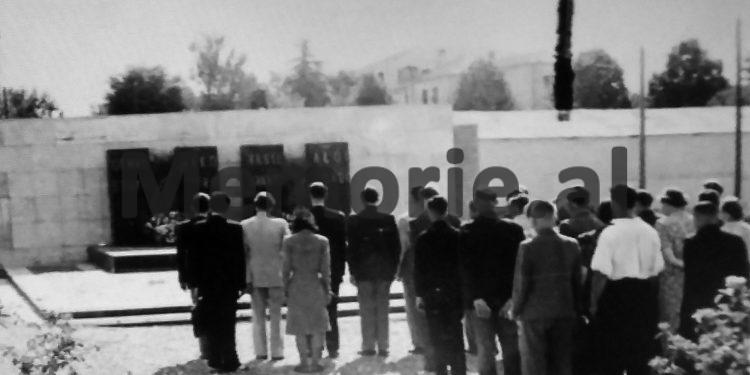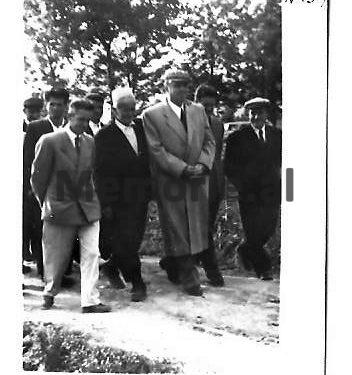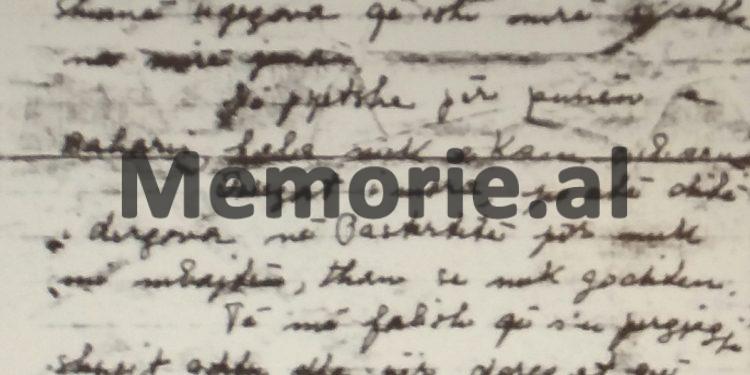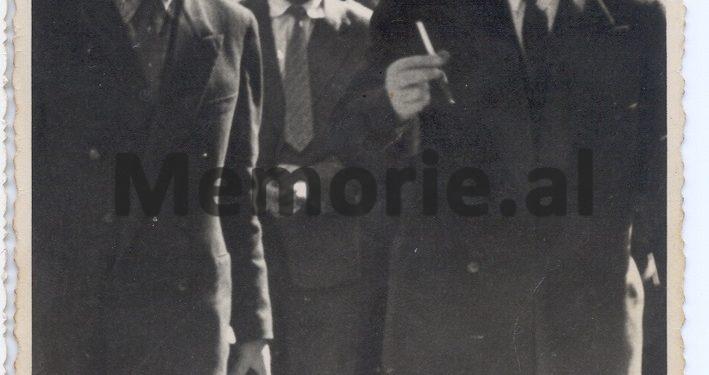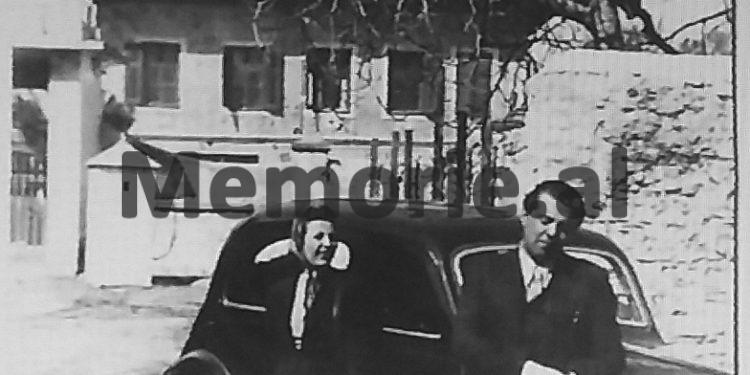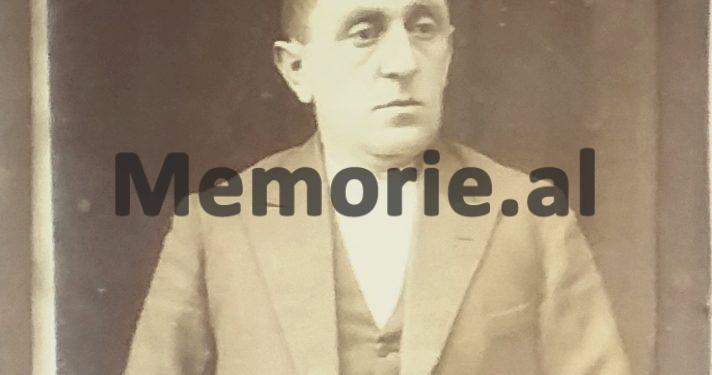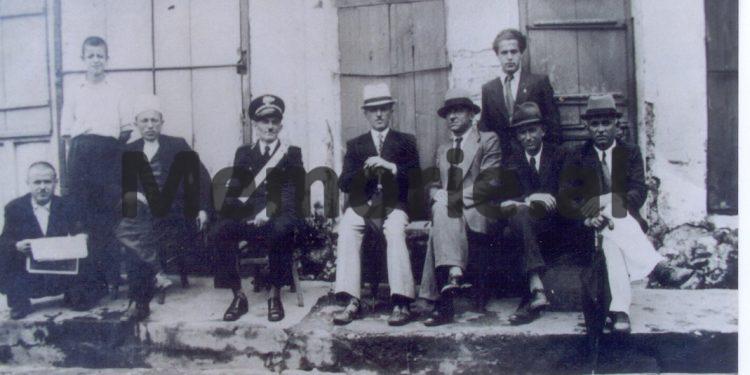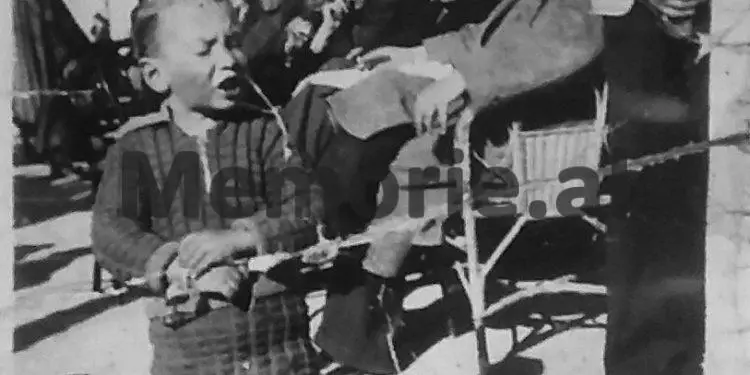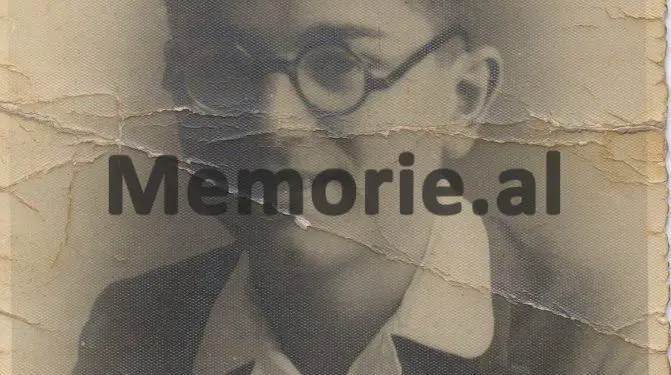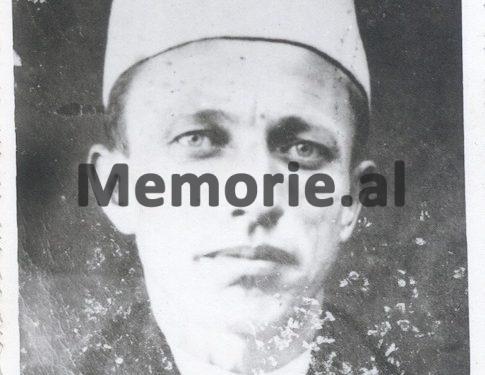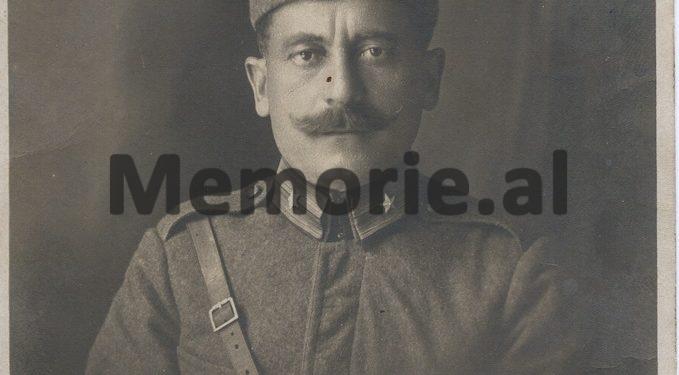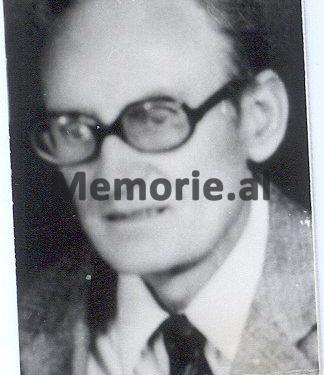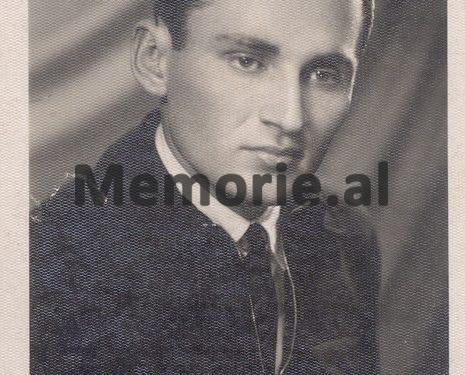Dashnor Kaloçi
Memorie.al publishes the unknown story of Qemal Stafa, who in 1935, after the death of his father, Colonel Hasan Stafa (soldier of the Zog Monarchy as head of the Shkodra Regional Recruitment Office), together with his mother , brothers and sisters, moved and came with the family to Tirana, under the care of Ramazan Xhepa, one of the close friends of the Stafa family, who had served as the ordinance of his father, Hasan, to whom he left his trust and family. Beqir Xhepa’s rare testimonies starting from the period when he first met Qemali in 1938, when together with his father, Ramazan, they attended his trial in one of the halls of the Municipality of Tirana, as he had previously been interested in to find a lawyer, how Qemali charged him with the task of his personal courier and the orders he gave, other communists who took refuge in their house, such as: Enver, Vasil Shanto, Mustafa Gjinishi, Nako Spiro, Hasan Reçi , Kajo Karafili etc., Qemali’s relations with Enver, Nexhmija, Bab Myslym, etc., the mystery of Qemali’s murder on May 5, ’42 where his assassin, Vançi Bajrakatari, with the nickname “Iron”, was sent with “service” on on May 4, and why Xan Xhepa went to the “Flora” store the next day and said to Enver: “He asked for Qemali’s blood from you” ?!, until the persecution of the Xhepa family during the communist regime with prisons and internments, where Beqiri himself, although he had been interned in the Mat’hausen Nazi Camp, was sentenced to prison four times, and why did he refuse to hand over Kemal’s relics, clothes, documents and revolver ?!
“Our friendship with the family of Qemal Stafa, increased even more after 1935, when shortly before his death, his father, Colonel Hasan Stafa, left him with the trust that our father Xan Xhepa, to take care of his children. Based on this great friendship we had with that family, on April 6, 1939, when fascist Italy was expected to land and the prisons exploded, the unfortunate Qemal Stafa came and took refuge in our house. There he constantly came to treat him, his uncle tij, Dr. Qemal Sejdini. Qemal Stafa left our house only ten days before he was killed, after the Prefect of Tirana, Qazim Mulleti, who was a friend of our father, Xani, sent words to him through the Chief of Tirana Police, Man Kukalesh and two of his officers, Xhelal Peza and Gëzim Latifi, telling him to remove Qemali from the house and send him to Peza, after his friends had spied on him at the Police Station and he was wanted by candlelight. After that, my father could hardly persuade Qemali to leave our house and he fled and settled in another base, in the house that Beqir Minxhozi had rented, where he was surrounded and killed on May 5, 1942. As soon as he learned about the murder of Qemali, our father Xani, went to the store “Flora” and said to Enver Hoxha: ‘I ask for Qemali’s blood only from you “.
This is how Beqir Ramazan Xhepa, the former courier of Qemal Stafa, recalled one of the most talked about stories from the period of the War until the fall of the communist regime, who told us all the mysteries of that sensational event. occurred on the distant May 5, 1942, an event that shocked not only the Albanian communists, but also the entire city of Tirana. But who is Beqir Xhepa, what is his past, what connections did he have with Qemal Stafa and what tasks were assigned to him at the time when he served as his personal courier? Why did the Prefect of Tirana, Qazim Mulleti, say to Ramazan Xhepa, about Enver Hoxha: “This is ours”? Who postponed to Qemal Stafa his trip to Vlora on May 4 and 5, 1942, and under what circumstances was Qemali surrounded and killed in the house that Beqir Minxhozi had rented? Why Qemali’s personal companion, Vançi Bajraktari, or as he was otherwise known by the nickname “Iron”, on May 4 left with “service” to the city of Shkodra, which was the fierce debate he had with Enver Hoxha in the store “Flora” The day after Qemali’s assassination and why from that day he withdrew from the War and from the Party? Who was Jani Kristo, the person who spied on Qemali in the Questura and how did he kill him with the assassinations, Kajo Karafili, after he took him out in the appointed place, the Chief of Police of Tirana, Man Kukaleshi? Why on the evening of the day that Qemali was killed, Ramazan Xhepa, went to the “Flora” store and said to Enver Hoxha: “I ask for Qemali’s blood from you”? How was Enver acquitted after the accusations of Xan Xhepa and Vançi Bajraktar and which of the communists did he accuse as the spy of Qemal Stafa and how did he order his execution after his release from the Tirana prison? What were the relations of Qemal Stafa’s family with Enver Hoxha after the War and why did his mother and sisters refuse to receive Enver Hoxha in their house on the occasion of May 5? How did Enver Hoxha eliminate them, executing the four people who accused him of killing Qemali, and how did he imprison, intern or execute all those people who were surrounded in the house where Qemali was killed on May 5, 1942? Why did Enver Hoxha massacre the entire Xhepa family, imprisoning, torturing and executing them and why did Beqir Xhepa himself, the former courier of Qemal Stafa who had suffered in the Nazi Mat’hauzen camp, imprisoned four times? suffering for years in the prisons and psychiatric hospitals of the communist regime, where did he come from only in 1988? Why were the assassination of Qemal Stafa, together with that of Hekal’s advisers, the only two events of the war period that the communist regime continued to investigate until the mid-1970s, and who were the people convicted of them? For all these mysteries and full of other facts about one of the most talked about stories since the war, we know the exclusive testimony of Beqir Xhepa, who also made available to us many letters, photos, documents and personal belongings of the famous hero, Qemal Stafa (which we are publishing in this article), whose birthday was used by the communist regime as a symbolic day to commemorate all the martyrs of Albania.
Continued from the previous issue
Mr. Beqir, who was Zef Ndoja and why was he accused by Enver Hoxha as the person who had spied on Qemali. What is the truth about this?
Zef Ndoja was a young communist of the Shkodra Group and at the time Qemali was killed, he had been arrested and held in prison cells for about four months. But the accusation that Enver made about Zef Ndoja, did not stand at all and this has several explanations. But the most important thing is that Zefi, being arrested, he had no knowledge of where Qemal Stafa was hiding and he did not know that.
What happened to Zef Ndoja after that and how did his fate go?
Zef Ndoja remained in prison until the spring of 1943 and he managed to escape from the Tirana prison, together with Koci Xoxen and many other communists in the famous action known to all, for which the film was made. “Guerrilla Unit”. After that, by order of the Party, he was assigned to go as a simple partisan to the Kruja-Ishëm Çeta, but without the right to bear arms. At the time that Zefi was sent to that gang, I had known him personally and personally, as I was serving as a courier at that time and I stayed with that gang for some time. Zefi wore a large pair of glasses and at night did not look at all, as much as I owed and held him by the arms to move from one place to another. Unarmed, in semi-arrest, Zef Ndoja remained with that gang until September 1943, when an order came from the Party that he be executed. After that order, a team of partisans took him and executed him somewhere in a stream in the village of Priska, at the foot of Dajti Mountain.
Who gave the order for Zefi’s execution and with what motivation was he executed?
It is understood that the order for the execution of Zef Ndoja could only be given by Enver Hoxha, because at that time, no one else had the right to order the execution of the simplest partisan and not a well-known communist like Zef Ndoja. His execution was motivated by the fact that “he had spied on Qemal Stafa”. That was the charge that led him to the bullet.
Did anyone else become responsible for Qemali’s murder and were there other executions?
According to the information they had received from Qazim Mulleti and Man Kukalesh, that is, Qemal Stafa was tracked down by the agent of the Questura, Jani Kristo, originally from Përmet, the Communist Party decided to execute him and charged Kajo Karafili with that. In 1944, Jani Kristos was assassinated by Kajo Karafili, but he miraculously escaped without being shot. The Communists were very upset about the failure of that action and demanded that he be killed in another assassination attempt. In the evening of that day, while Jani Kristo was drinking in a bar with Man Kukaleshi and Qazim Mulleti, (thankfully he had escaped from the morning assassination) Kajo Karafili entered and shot him several times with a revolver, leaving him dead. in place”.
How is it possible that only Jani Kristo was killed at the table where Qazim Mulleti and Man Kukaleshi were?!
Kajo Karafili could never shoot at Qazim Mulleti and Man Kukaleshi, as they were not only the two closest friends of Shyqëri Peza, whose daughter Kajo was engaged to, but Qazimi and Mani had done many honors, pulling dozens of communists out of fascist prisons. It is even said that the police officer’s agent, Jani Kriston, Qazimi and Mani took Kajos out of the way to kill him.
What about the communist Beqir Minxhozi, in whose house Qemal Stafa was surrounded and killed, what happened to him and how did his fate unfold?
After the end of the war, Beqiri had worked as the Director of NTLUS in Tirana and it seems to me that he worked there until he retired. But he was expelled twice from the Party, for what I told the Questura, the house where Qemali was hiding with other comrades.
But regarding what is said, that the Questura found in his pocket the contract of the rented house, and based on the address that was written there, she did the siege of the house?
I have heard this too, it may be so.
Did you know Qemal’s fiancée, Drita Kosturi, at that time?
Qemali had brought Drita Kosturi to our house where he was staying at that time and when his father asked him who that girl was, he introduced her and told her that she was his fiancée. Baba said to him: “Well, take Qemal, you are looking at your head once and then deal with these things”. After these words of Xani, Qemali told her that she was a very good girl and he had known her since the time they were both studying in Italy.
But before 1964, how were the relations of Qemal Stafa’s family with Enver Hoxha and how were Qemal’s mother, sisters and brother treated by the communist regime?
As I said a little above, since the war period, the family of Qemal Stafa was quite clear who was primarily responsible for the murder of their son, but as events unfolded afterwards, they were forced to remain silent and not to express themselves publicly about their resentments against Enver. However, from time to time, Kemal’s mother and two sisters, as well as his brother, Alajdini, were forced to blow their whistles. This must have been the main reason that Enver did not give them for a long time, the pension of the “People’s Hero” that belonged to Qemali. That was settled only after many requests from Qemali’s sisters and it took the intervention of Gogo Nushi, near Enver, to give them his brother’s pension. I also wanted to say that Qemal Stafa’s family was not only denied a pension, but they were not given any privileges, like many other families of martyrs, who received villas, scholarships abroad, good jobs and other facilities.
Where did Qemal Stafa’s family live after the end of the War?
Qemal Stafa’s family lived for a long time there, Llagamët, where my father, Xani, had arranged them since 1935 and after that, only his two sisters went home alone. Likewise, Alajdini, although he was with the university, did not enjoy any special privileges, but was left to work in a regular job, and only in 1952, he was hardly accepted in the Party. Alajdini was in a very bad economic situation and to raise his three children, he had bought a cow which he was grazing after returning from work. Then he bought another cow and got up at 5 in the morning and went out to the fields of Lapraka with a sack on his arm to collect grass for the cows, and after filling the sack, he came and left it in our house and left for work. When he returned from work, he would pick up his sack of grass and take it home so that no one would see him.
How did they allow Alajdin to keep cows in the middle of Tirana?
Regarding the problem of the cow that Alajdini kept at home, it became a big problem and the matter went to the Prime Minister Mehmet Shehu, who in one case went to Alajdini at home and told him that he was not doing well holding the cow, as the Party was trying to take away the cows from the villagers and herd them. But Alajdini replied to Mehmet, saying: he did not remove the cow, as he could not support the family with the 7 thousand lek he received per month. When Mehmet Shehu left, some of the party members who remained there told him that he did not respond well to Comrade Mehmet, and Alajdini returned them, saying: “Not Mehmet Shehu, give an order for me to remove the cow, but also the father of “Mehmeti, I do not take the cow out of the house, as I do not let my children die of starvation.”
What about you and your family, how did Enver Hoxha behave after the war?
Our family was hit hard by Enver Hoxha. Thus, after they had been arrested since May 2, 1945, Xanin, together with his uncle, Adem, were kept for 40 months in the investigator’s “House of Leaves”, being barbarically tortured. After their arrest, the Security put various pressures on us and checked our house from time to time. I was in school at the time and I was forced to interrupt and continue the night and got a job in the Albanian-Yugoslav Society, in order to support the family with bread. Xanin and our uncle, Dem Xhepa, were accused of being affiliated with the Group of Deputies. Xani appeared in court in September 1948 and was sentenced to only those 40 months that the investigator had done, while Demi was sentenced to 10 years but was later released with another trial. In June 1952, Xani and Dema were arrested again, but this time the charge was for gold problems. That was just one reason for their arrest, and after that charge, 400 gold napoleons and 2,000 gold francs were confiscated from them. At that time, they were held for three or four months in torture and Dema, unable to bear it, jumped from the third floor of the Internal Affairs Branch to kill himself. After that he was released from prison and Dema died after three months in a hotel, after they had nationalized his villa and shop, with the money of which he had helped Enver and the War.
What about another man from the Xhepa family, was he convicted then?
After the arrest of Xan and Dema, in 1951, their uncle’s son, Qazim Xhepa, was also arrested, accused of the bomb incident at the Soviet embassy. His arrest came after he had been a Fultz student and was accused of having participated with the High Regency at the time of the occupation. Also, while Xani was in prison, my brother, Petrit, was arrested. From the tortures that were inflicted on him, Petrit went into a deep depression and lived like that until his death in 1972, staying, both at home and in the psychiatric hospital. But from our family, I suffered the most severe persecution from the communist regime, being arrested and convicted four times and all my arrests and convictions were made directly by order of Enver Hoxha.
How do you explain why all this happened, both to your family and to you personally?!
All that savage persecution of our family came as a result of Enver’s revenge on all those who accused him of being responsible for Kemal’s murder.
Apart from your family, who else suffered and who was persecuted for that event of May 5, 1942?
All those who accused Enver of having a hand in Kemal’s murder were executed or eliminated by him at different times. Likewise, all those communists who were in the house where Qemal Stafa was killed that day, without exception, ended up in prisons and internments. Enver did all this to hide the traces of the crime he had committed with the murder of his friend, Qemal Stafa, whom he saw as the main contender who could take his place at the helm of the Party.
More specifically, how did Enver take revenge on these people you say?
The first to fall victim to the intrigues and traps sets by Enver to make credible his alibi that he had no hand in Qemali’s assassination, was the communist of the Shkodra Group, Zef Ndoja, whom as I told you above, Enver e executed since 1944 in the village of Priska. After him, by order of Enver, Liri Gega killed Mustafa Gjinishi, Kemal’s closest friend and at the same time my father. After Gjinish’s murder, my father told Enver that he had been killed by his comrades by order, but Enver replied that this was not true. Afterwards, the series of eliminations, Enver continued with Hasan Reçi, who was executed in 1946, when he was working in the Ministry of Education, where he was dealing with student scholarships. Shortly before my father entered the prison, at the beginning of 1945, when I had not yet returned to Albania from the Mat’hauzen internment camp, Hasan Reçi had come to our house and told Xani about what he had done. Enver was doing.
What did your father say?
His father said to him, “Do not talk too much, for he does not make it long.” If only my father knew that Hasan Reçi would also go to the bullet. After these and my father, Xani, who had directly accused Enver of killing Kemal, Enver continued his revenge with Kristo Themelko, Gjystina Sata, Marije Lezhja and even Kemal’s ex-fiancée, Drita Kosturi, who ended up in prison and internimve. Enver condemned all of them to shut up about the event of Qemal Stafa, which apparently tormented him for life, like a bad ghost. This is also explained by the fact that Enver in the last year of his life, when he saw that he was leaving this world, he remembered to publish the memoirs where he talked about the murder of Qemali and there he again does not tell the truth.
Why specifically?
Enver says there: he met Qemali on May 4, one day before the murder, at a base on Shëngjergji Street. In fact, it is not so, that Qemali has not left that house at all since a few days ago. For this, if you want, go and ask Gjystina Sata (or Flora Dishnica) one of those communists who is still alive and was that day with Qemali and her two friends in that house.
What about you, how did Enver Hoxha get revenge?
The persecution of me began in 1951, when I was working in the Consular Office of the Ministry of Foreign Affairs. There I was provoked for the bomb at the Soviet embassy and I told them it was only done to get rid of some people. After that I started working in the Ministry of Communications and in 1952, without making any prayers, Gogo Nushi introduced me to the Party. In 1952, I was admitted to a secret office at the Ministry of the Interior, but I refused because I knew it was a trap to convict me. After 7 months, on July 22, 1953, I was arrested leaving the “Qemal Stafa” stadium. This came after the provocation made to me by Colonel F. S. (Chief of Physical Security and Leadership Guard), with whom we also had a physical conflict. After being tortured for 24 hours, I was released because my party organization complained. After that I complained in letters to Enver, Mehmeti, Fiqretja and the General Prosecutor. Mehmeti gave me the right and transferred F.S. in Kukës for two years and H.XH. who beat me with him, was sent to Gjirokastra.
Did Enver respond?
After many letters, he received me in the office where I showed him the bloody chest, telling him that they had not done it to me even in Mat’hausen. He said to me: “Let go, let go because you have opened your mouth a little too much…”! After that I said to him: “It is useless that I am complaining to the Party, because this is a message….” and fled without shaking hands.
What about the other arrests?
After graduating from the Faculty of History at the University of Tirana, I worked at the Kinostudio “Shqipëria e Re” from 1962 until November 13, 1970, when I was arrested on charges of “agitation and propaganda” and after 17 months as an investigator, I was sentenced to 8 years in prison.
How did this happen?
All this came after the chance meeting I had with Enver when he paid a visit to Kinostudio and asked me: “What does Xani say”? (Here I have these two pictures that I am talking to Enver). I told him that he had remarks from where the villagers came and asked them to buy bread with you. After that, he told me to write them a letter. In the letter I made to him, I wrote it all down, telling him that it was a great misfortune that the villagers came to look for bread in the city. The letter I sent him in the mail was called anonymous and I was sentenced to 6 years in prison. While I was in the last two months of prison in Ballsh, on July 15, 1976, I was arrested again on the same charges and the court in Fier brought me for examination in the Psychiatry of Tirana.
But why were you brought to that hospital…?!
It was all done to make me irresponsible, it was a familiar scheme. But despite my insistence not to give me that diagnosis, Dr. Afrim Dangëllia signed it for me, telling me that it is better that way, then to eat 10 years in prison. After eight months of investigation, I was released on November 25, 1977.
After you got out of prison, where did you work?
For several years I was sold cigarettes on Kavaja Street and for the fourth time I was arrested on November 28, 1986, on charges of propaganda agitation and after 6 months of investigation, the court decided to take me back to Psychiatry, from where I was released. on October 16, 1987.
On what charges were they arrested?
This arrest of mine came after the State Security had put a person in our old house to check if I had anonymous letters and some relics of Qemal Stafa that the Historical Museum had asked me for and I did not give them. During the Security check, I was found with an album and a bust of Zog, as well as some old antiques and icons. I was also found with 40 kg of sugar that people had brought to me for my father’s death. They called me a thief and I barely escaped that charge.
What about Qemali’s relics?
No, they did not find them because I had put them in the ground. I knew that the State Security was arresting me for them, to take me away, that they were a living document that I had a connection with Qemal Stafa. Qemal’s opings made by Ramazan Balluku, his two fountain pens and his revolver, as well as the ashes of Gogo’s brother, Kozma Nushi, with whom I was interned in Mat’hausen, I still keep today as the greatest wealth of my life. Look, these are.
Enver’s testimony in his memoirs about Kemal’s murder
“The last day of my baking with Qemali was on May 4. We were burned at base number 66 on Shëngjergji Street, at the house of Hysen Dashi. Qemali and I stayed in the room all day and worked. The old man brought us to eat. I was preparing a lecture for the Red Army, Qemali was preparing that the next day, at dawn on May 5, he would leave for Vlora. We slept close to each other, in a blanket-covered minder. In the morning we hugged and parted. He left for Vlora, I for a meeting with friends. No matter how many times we carried, as the people say, “with the shroud on our heads”, with cobwebs on our belts and with bombs in our pockets, we did not even think about the death that awaited us on every street corner. How could I think that I kissed and hugged for the last time on my chest, my best friend of the Party, my dear friend and comrade, Qemal Stafa?! At the base where I was, a friend came and, crying, said to me: The enemy killed Qemal Stafa! I put my hands on my head and could not hold back the tears. Where was he killed? I told. In Tirana, my friend told me, in a house on the river bank of Tirana. I stood up and hopefully said to him: It should not be true, Qemali who left for Vlora in the morning. For this I am sure, do not believe that the enemy opens slogans. “Alas,” my friend told me, “this is true.” Kemal fell fighting heroically and defended the withdrawal of the comrades who escaped. He spent all the ammunition he had. “And he told me the whole story of the event that history has gone through.”
(This part is taken from the memoirs of Enver Hoxha, published in the book “For my pioneer friends”, Tirana, 1985)
Memorie.al




